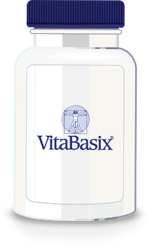Vitamins are the basic elements of life. They are essential for health because the human body simply could not function without them. Together with minerals, vitamins are involved in most chemical reactions that take place in the body. Vitamin and mineral deficiencies are often the cause of many symptoms and ailments. Certain micronutrient deficiencies can build up unnoticed over years.
Vitamins and minerals are called biocatalysts. The same is generally true of enzymes, co-enzymes, amino acids, plant fatty acids, phytochemicals and other vital food components, while the many phytonutrients (nutrients derived from plants) can mimic the effect of various messenger substances, albeit often in a weakened form.
People can benefit from eating foods with the nutrients that provide particularly highly active vital substances through their daily diet.
These include, among others:
Vitamin A: The most important of the 400 carotenoids is beta-carotene, a natural precursor of vitamin A – a vitamin that is typically lacking in heavy alcohol and nicotine consumption. In addition to liver and sausages, eggs, dairy products and some types of fish also have a high content of the vitamin. It can also contribute to normal iron metabolism, help maintain normal vision and support the immune system.
Lycopene: One of the most important “phytamines”. Lycopene is found in high concentrations in red tomatoes and rose hips. Its benefits serve the cardiovascular and immune systems as well as controlled cell growth.
Lutein: High concentrations of lutein are found in dark leafy vegetables such as cabbage, kale and spinach, but significant amounts of lutein are also found in egg yolk. This nutrient has a particularly positive effect on eye function.
Inositol is found in grains, nuts, seeds, legumes, fruits and vegetables, among others. It can support the effectiveness of the body’s own neurotransmitters such as the “happiness hormone” serotonin.
As a co-enzyme, PABA (vitamin B10) can support the functions of folic acid and pantothenic acid, a stress regulator. It is found in yeast, offal, chicken eggs and cow’s milk, among other things.
Muira puama root is a sandalwood tree with drupes. Extracts from muira puama can promote normal testosterone levels while supporting sexual desire.
Sarsaparilla root: Thanks to the saponins contained in the extract, Smilax officinalis can regulate the energy level in the cells and support any blood purification.
Ginger root was originally praised for its relaxing effect, but it can also act as an aphrodisiac. Ginger can also be helpful for a normal immune system.
Ginseng root: The extract of this root is rich in saponins and ginsenosides, which have a balancing and harmonising effect on the body. Ginseng can additionally contribute to the eventual normalisation of testosterone levels.
Damiana leaves are more than just an herbal aphrodisiac from South America. Not only do they promote a strong libido, but they can also help the body to achieve an optimal supply of energy and stamina. Certain ingredients in damiana can additionally lighten the mood if necessary.
Calcium: Certain calcium-containing mineral mixtures have numerous characteristics. They not only supply the organism with minerals, but can also help regulate the body’s pH value.
Zinc is found among others in meat, dairy products, fish, whole grains, legumes and nuts. It can contribute to normal DNA synthesis and support normal cognitive function. Other minerals such as copper, selenium, manganese, chromium and molybdenum are needed to promote normal energy levels, improve bones, support a normal immune system and more, and support the effects of zinc.
Magnesium is found in foods such as cereals, nuts, seeds, pulses, green vegetables and dried fruits. Among other things, it can support proper muscle function.
Iodine: Sea fish and seafood, eggs and cheese and dairy products contain a lot of iodine, it can contribute to normal cognitive function.
Vitamin B: contributes to normal energy metabolism and normal functioning of the nervous system, among other things. B vitamins are found in many animal and plant foods such as fish, meat, eggs, nuts and pulses.
Vitamin C can contribute to the normal function of the immune system and to normal energy metabolism.Vitamin C also influences iron absorption in the body and thus again plays an important role in energy production. Citrus fruits are considered the classic main source of vitamin C. However, many vegetables such as peppers, broccoli and cabbage are also rich in vitamin C.
Vitamin D can contribute to normal blood calcium levels and normal bone and muscle function. Vitamin D is mainly found in animal foods such as fish, eggs, meat and dairy products.
Vitamin E helps to protect cells from oxidative stress. Foods high in vitamin E include various oils, nuts, seeds and green vegetables.
Vitamin K is important for blood clotting and bone formation. Green leafy vegetables and vegetable oils in particular are considered good sources of vitamin K1.
Choline is found primarily in eggs. By protecting nerve cells from environmental toxins, choline can support neurotransmitter function and normal cognitive function.
Piperine is found in black pepper and can increase the bioavailability of various micronutrients.



 Chronobrands
Chronobrands




Reviews
There are no reviews yet.